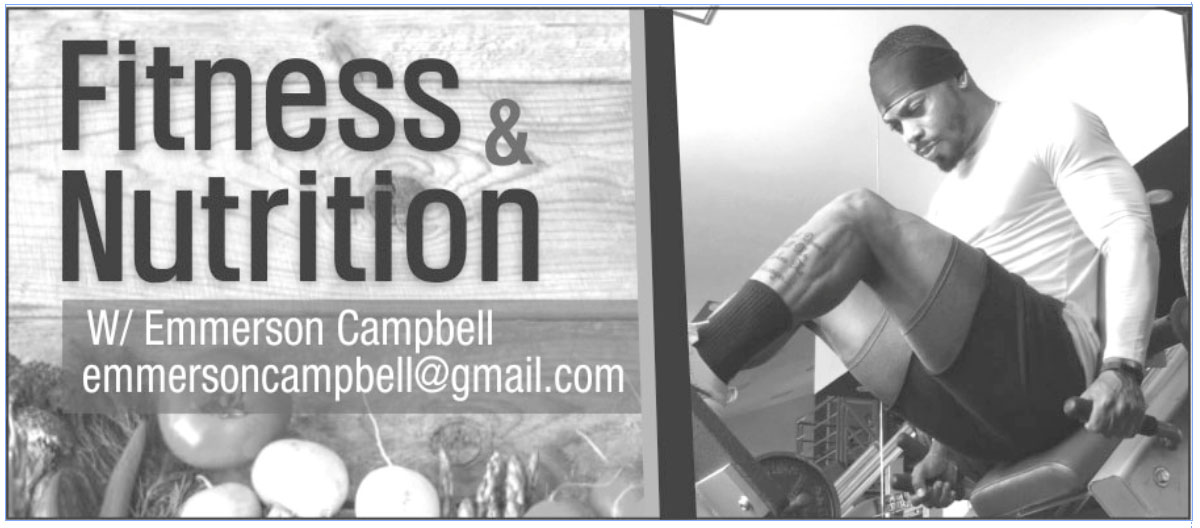The world is currently rife with discussions about the coronavirus pandemic and its effects, even on the living. Aside from the loss of jobs and income and normalcy in general, stress is a major factor that can lead to even more deaths.
In this week’s column, we will discuss stress and some coping mechanisms to deal with this unprecedented time in history.
The basics
Stress has always been a natural part of life and is actually an important survival mechanism: the fight or flight response. In the days when humankind lived a hunter/gatherer lifestyle, stress was often the difference between eating and being eaten. Imagine the scenario: You are tracking tonight’s dinner through the jungle when you inadvertently stumble into the path of a hungry bear. In response to this obviously stressful situation, your body:
● Increases adrenaline production
● Speeds up your heart rate
● Dumps lots of glucose into your blood for energy
● Increases muscle tension
● Increases nerve transmission speed.
The result? Your body is primed to run, or fight for your survival. After doing one or the other, and having removed yourself from the source of stress, your body recovers and soon returns to its pre-stress state. Your heart rate returns to normal, as do your blood glucose levels.
Muscle tension eases and cortisol is produced to counteract the effect of adrenalin. Fast forward to the 21st century, and your body responds the same way to modern stresses. Unlike our ancestors, stress is often a constant companion and we have fewer outlets.
For modern people, the physical threat of hungry bears has been replaced with:
● Blaring alarm clocks
● Traffic
● Money worries
● Demanding jobs
● Crashing computers
● News
● Noisy neighbours
● Unreasonable deadlines, plus all the other things that seemingly conspire to make your life more difficult than it needs to be.
What stress does to your body
Being constantly stressed plays havoc with every system in your body, and can cause a wide range of health problems including: weight gain and obesity, skin breakouts and acne, depression and anxiety, digestive and gastrointestinal problems, migraines and headaches, accelerated ageing, heart disease, hypertension and diabetes, among other ailments.
How to decrease stress
Many of the causes of stress are unavoidable. Short of selling all your possessions and moving to a desert island, it is all but impossible to remove external stresses. However, if you know that certain situations cause you stress and they are avoidable, it is a good idea to do so.
For other sources of stress that you cannot avoid, it is important to learn how to make them less impactful.
Good stress coping strategies include:
Low-intensity exercises such as yoga or pilates, good nutrition, deep breathing and meditation, getting adequate sleep, using supplements, acquiring a positive mindset, developing better time management skills, learning to prioritize, avoiding perfectionism and negotiating more realistic deadlines.
Exercise
Exercise is a meditation on the move. Whatever you do, it will distract you from many of life’s stressors. An opening like this can often lead to the creative breakthrough that allows you to deal with whatever was stressing you in the first place.
Rest
Stress can keep you awake at night, and tiredness has a way of magnifying whatever is causing you to feel stressed in the first place. Exercise can help you sleep longer and better. This additional mental energy and focus will improve your ability to cope with the stresses of the coming day. If you are someone who likes to exercise in the evening, make sure your pre-workout is non-stimulant. Having a pre-workout that isn’t loaded with caffeine is essential for a good night’s sleep.
On days when you are feeling really stressed and exhausted, it would be best to remove the pressure of high-intensity workouts. Slow the pace down with a session that is really working on form plus technique. Make sure to take ample time at the end of the session to stretch.






